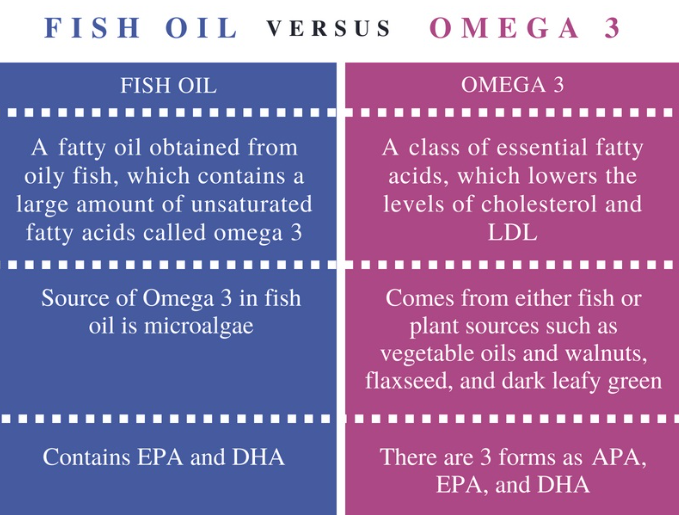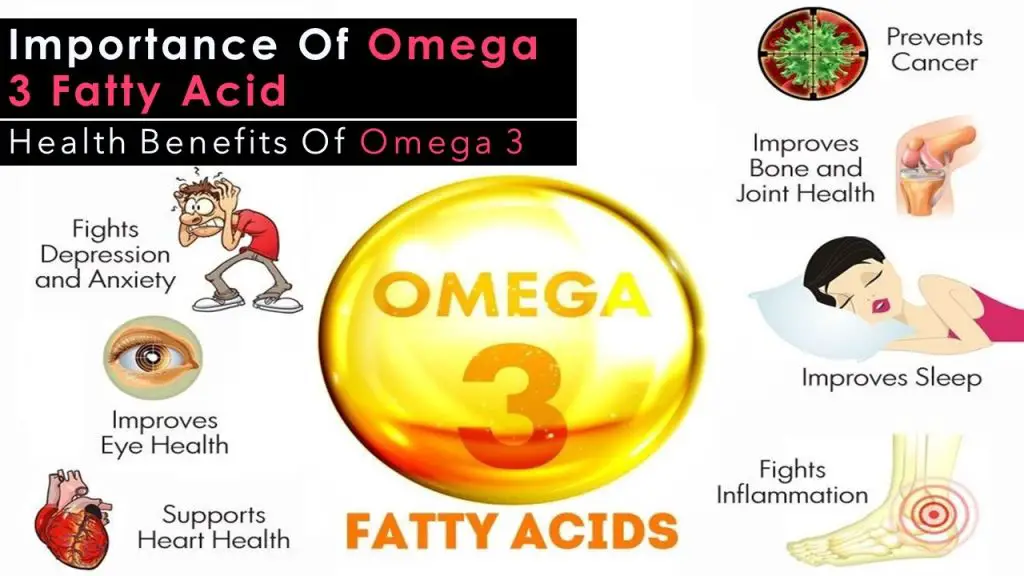Keeping a healthy, well-balanced diet is no easy task.
Often, we think our diets are perfect, but in truth, they lack essential nutrients.
One of those necessary nutrients is omega-3 fatty acids. But what are omega-3s, and why are they good for you?
Read on to learn more.
What Are Omega-3s?

Omega-3s are a type of nutrient found in certain foods and many supplement products.
This nutrient is a fatty acid classified as a polyunsaturated fatty acid.
Unlike trans or saturated fats, omega-3s are very beneficial for your body and mind. There are three different kinds of omega-3s:
- A-linolenic acid (ALA), which is found in plants.
- Eicosapentaenoic acid (EPA), which is found in algae and fish.
- Docosahexaenoic acid (DHA), which is found in algae and fish.
EPA and DHA are in fish because these animals feed on omega-3-rich algae, whereas ALA is usually found in seeds and walnuts.
Mammals are incapable of synthesizing these acids internally, meaning we must seek sources of ALA, EPA, and DHA to create a well-balanced diet.
Why Are They Good for You?

So why are polyunsaturated fatty acids such as omega-3s beneficial for the human body?
In actuality, these nutrients are essential for maintaining a healthy diet and high quality of life. This is because they bind to receptors found in every cell in our bodies and help regulate genetic functions.
Fatty acids are integral for producing the hormones that manage inflammation, artery stress, and blood clotting.
Research suggests that fish oil can help minimize symptoms of depression, although the results are not 100 percent conclusive at this moment.
Omega-3s found in fish oil help lower high triglyceride levels, reducing the risk of stroke and heart disease. Combining EPA and DHA can help manage joint pain and reduce inflammation throughout the body. DHA is believed to boost neurological development in babies.
How To Add More Omega-3s To Your Diet

As you can see, a balanced diet demands suitable amounts of omega-3s. Most health organizations recommend 250 to 500 mg of EPA/DHA (combined) and 1,100 to 1,600 mg of ALA daily for adults. But how do you reach this number within your diet?
As mentioned before, fish oil found in both fish and supplements is an excellent source of ALA. Additionally, a plant-forward diet helps supply the body with high numbers of EPA and DHA.
However, certain meats contain suitable amounts of omega-3s, such as quality beef jerky. In fact, beef jerky is a great post-workout snack because of its high levels of polyunsaturated fatty acids.
Here’s an example of an healthy fatty rich rich diet that you can practice yourself:
Breakfast: Grain cereal with soy/almond/fortified milk, fortified eggs, and/or oatmeal with chopped walnuts/ground flaxseeds/pumpkin seeds.
Lunch/Snack: Fruit cup of blueberries/avocados/mangoes and/or artisan jerky.
Dinner: Mackerel/salmon dish with a side of seaweed/brussels sprouts/cauliflower and nuts.
So if you’ve ever wondered what omega-3s are and why they are good for you, you now know that they are essential for maintaining a high quality of life!
You can even use omega 3 supplements in a completely healthy way to receive proper amounts of ALA, EPA, and DHA, especially if certain dietary restrictions prevent you from getting it naturally.
Consult a doctor if you have concerns over your fatty acid consumption, as doctors can assist you in creating the best possible diet.


